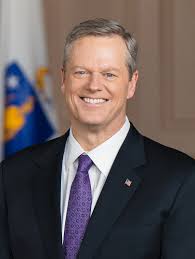Charlie Baker: A Look at His Political Career and Recent Moves

Introduction
Charlie Baker, a prominent figure in American politics, has recently garnered attention due to his evolving role within the political landscape. As a Republican governor of Massachusetts and a former CEO, Baker’s decisions and leadership style have made significant impacts on public policy. Understanding his current initiatives and future ambitions is essential for those monitoring political developments in the United States.
Political Background
Charlie Baker served as the 72nd Governor of Massachusetts from January 2015 to January 2023. His administration was marked by a moderate approach, focusing on a mix of fiscal conservatism and progressive social policies. Baker was re-elected in November 2018, a testament to his popularity, which often transcended party lines. Before entering politics, Baker had a successful career in the private sector, including a notable tenure as CEO of Harvard Pilgrim Health Care.
Recent Developments
In recent months, Baker has made headlines for taking on a new role as the President of the NCAA (National Collegiate Athletic Association), a position that allows him to influence significant reforms in college athletics. His appointment in March 2023 has been seen as a strategic move to bring leadership and innovation to an organisation facing increasing scrutiny over student-athlete welfare and compensation issues. He has stated his commitment to prioritising the health and well-being of student-athletes while navigating complex governance challenges.
In addition to his work with the NCAA, Baker has remained active in discussions around public health and education. His experience during the COVID-19 pandemic has shaped his perspective on crisis management and the importance of clear communication with the public, a skill he aims to utilise in his new role.
Importance and Future Outlook
Charlie Baker’s transition from state governance to a national organisation highlights a growing trend of politicians moving into major leadership roles within influential organisations. His prior experience in state leadership and business provides him with a unique perspective that could be beneficial for the NCAA as it navigates significant changes, including potential legal challenges related to athlete compensation.
As discussions about equity, student rights, and the governance of college sports escalate, Baker’s leadership could play a crucial role in shaping the future of athletics in the United States. His ability to connect with both political figures and the athletic community may provide a stabilising force amid ongoing reforms.
Conclusion
Charlie Baker’s new role and continued engagement in policy highlight the intersection of sports, politics, and health in today’s society. His career trajectory offers insights into the evolving nature of leadership in public service and its impacts on broader societal issues. As his initiatives unfold, they will undoubtedly be closely watched by both supporters and critics alike, making him a key figure to follow in the coming years.








